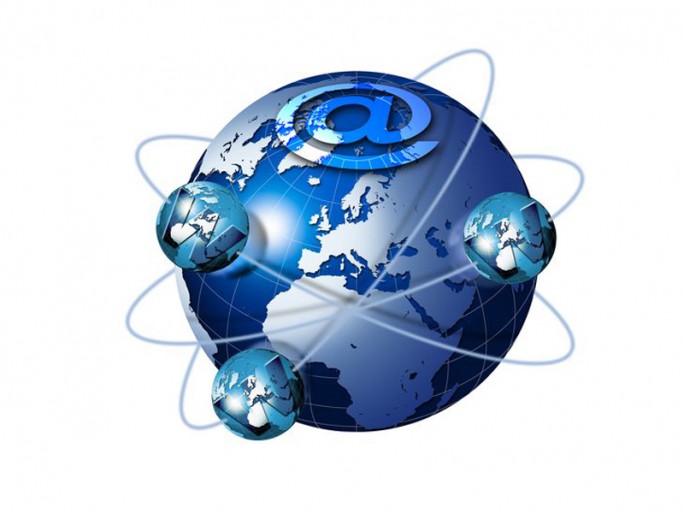40 Years of the Internet: Now Artificial Intelligence Takes Over

The Internet is entering a midlife crisis. Can AI make the Internet fit for the future, asks Christian Korff of Cisco Germany.
The Mobile World Congress in Barcelona once again showed that today almost all things are networked via the Internet. According to the Cisco Broadband Index 2022, 78 percent of Germans think that everyone should have secure access to fast and reliable Internet, regardless of their location.
When the Internet was born in 1983, TCP/IP communication protocols made it possible for the first time for different computers on different networks to connect to each other and send and receive data. Thus, the predecessor technologies from the Arpanet era were history. With the changeover to the Internet Protocol, which took around two years, the new name also increasingly became established.
The Internet: 5 billion people networked
Since then, further developments have followed, such as the World Wide Web based on HTML, which Tim Berners-Lee developed with his team at CERN, the first graphics-capable web browser Mosaic, social media and the cloud. Today, according to the Cisco Annual Internet Report, more than 5 billion people – almost two-thirds of the world’s population – use the Internet. Of these, more than 92 percent go online via a cell phone and can access millions and millions of apps and websites – whether via WLAN or 5G.
As with any technology, there is light and shade. A look back shows this: For good, the Internet, together with GPS, has ensured that no one gets lost thanks to navigation services. It also created many online friendships around the world. But for the worse, the always-on Internet can sometimes get you lost in the never-ending stream of news and data. And sometimes online buddies turn out to be scammers.
The midlife crisis: improving or reinventing?
For many people, the midlife crisis begins on their 40th birthday: What have I achieved so far? What should I do next and what goals do I still have? Today, we are also experiencing a caesura with the Internet, as it increasingly determines our lives, especially during and after the Corona pandemic. What is the outlook here for the next few years and what benefits can the Internet bring us beyond the midlife crisis?
Increasing quality of life
We can record, process and display our health data in real time. This prolongs our lives, alleviates illnesses and helps us stay fit.
Saved resources
The permanent exchange of information can ensure that resources are used much more appropriately. This makes irrigation, food production or energy consumption, for example, much more sustainable.
Democratized knowledge
Education becomes accessible to all and increasingly easy to consume. Even language barriers, time differences or lack of mobility are no longer a problem thanks to automatic translations and virtual solutions.
Virtual working world
Without the Internet, the world would have stood completely still during Corona. Home office, hybrid work and video conferencing have come to stay. This is becoming more and more evident and further reinforced by new solutions.
Successful industry
Despite current delivery difficulties, efficiency gains are only possible through networked concepts and solutions. And only by doing so German industry can solve the demographic and skilled labor problem.
Greater security
Currently, users have to remember umpteen passwords or recognize spam. That is too much responsibility. The Internet must become so intelligent that it automatically ensures high security and data protection.
Reinventing the Internet with AI
How should we approach this transformation in concrete terms? We need to reinvent the Internet to some extent to make it fit for the challenges of the 21st century. To do this, the economics of the Internet must change, as must the way we design, build and operate networks. Above all, we should ensure that today’s Internet is already built on a foundation of IT security and sustainability: after all, we need to protect not only our services, but also our planet by using less energy.
For all these reasons, we need a new era of connectivity with Artificial Intelligence at its core. It is helping to create a secure, efficient and predictive Internet. Thanks to AI, the next generation of the Internet will make predictions based on usage patterns and prepare next steps. Networks will detect server problems before they occur and repair themselves. In this way, they will reduce waiting times and offer people a smooth online experience – whether for private surfing or for citizen services, healthcare or industry. Because the fact is: the Internet is becoming even more of a lifeline for our modern world.
Predictive Analytics Engine
How can this work in practice? When it comes to predictive networks, Cisco combines new AI-based predictive technologies with solutions for observability, visibility, and detection. To do this, we use data from a variety of telemetry sources such as data volume, time, latency, number and type of applications, or traffic paths. Once integrated, AI learns the patterns using models, predicts problems, and provides options for problem resolution. This first-available predictive analytics engine helps IT teams avoid problems and improve the user experience. Customers, such as network operators, can then decide how far to deploy the engine across the network, giving them flexible options to expand as needed.
A predictive Internet will then also be the cornerstone for all the exciting new technologies we hear about in the media – holograms, the metaverse, quantum computing. None of this can be realized unless the Internet is robust, fast, resilient and predictive. The solution to this is AI.

Member of the Management Board of Cisco Germany and responsible for International Key Accounts.